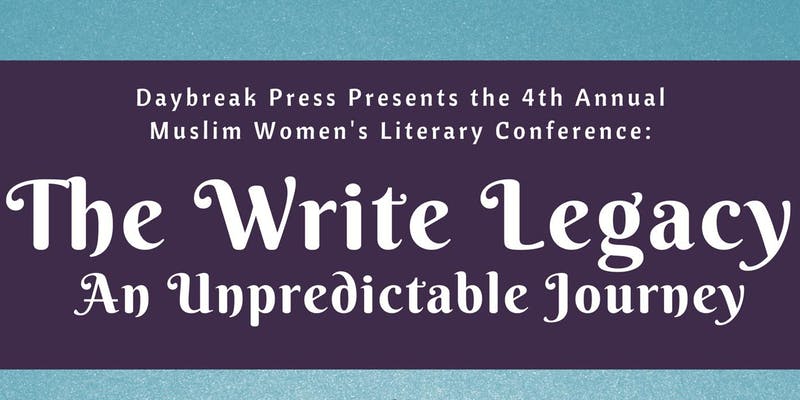What is the Muslim Women’s Literary Conference?
On October 27th, 2018, Daybreak Press held its 4th Annual Muslim Women’s Literary Conference. Fatimah Gomez was an attendee and gives us an overview of the conference.
The Muslim Women’s Literary Conference, which took place in Toronto, Canada at a college chapel, was a golden opportunity. It was hosted by Daybreak Press, an independent publishing company that strives to empower and raise the voices of Muslim women from all over the world.
Daybreak Press lets women recognise their identities by taking a firm hold of their own narrative. The organisation is part of Rabata, a larger, academic-focused organisation that aims to provide an uplifting and spiritual experience of Islamic education for women.
There were many speakers from diverse backgrounds, who spoke about the importance of using words to convey a heartfelt message. Discussions explored the topic of serving others with the fruits of our lives and religion through our own words. As Shaykha Tamara Grey, the founder of Rabata said, we are very fortunate to have the ability to showcase the beautiful writing that Muslim women have to offer through a platform as large and easily accessible as Daybreak Press. As we have seen in our history, few literary works and manuscripts written by women have survived.
Ustadha Shehnaz Karim, who has studied under various scholars of Syria, spoke about writing through a spiritual lens, whether for ourselves or for others. This is a way of connecting with God and finding inspiration along our spiritual journey to Him. “The written word is something holy,” she said.
Because of that, how we convey our messages to others is very important, lets them know who we are. She said that writing can be a means of prayer, writing to Allah when we’re not ready to openly talk to Him. Instead, we can choose to freely express ourselves through written words, and this creates meaning and a beautiful and sincere connection with our Lord. When we reflect on what we have written, we are ultimately discovering who we are, through a mirror of our own words.
When it comes to self-identity within today’s societies, it’s very important as Muslims to see ourselves and our identities reflected in literature. This helps us initially recognise who we are, which later leads to a stronger image of who Muslims are.
Sister Ambareen Syed, a writer and mother of six, mentioned that beautiful virtues are universally recognised by readers. And when our audiences are ready to hear the virtues of our religion through written works, we must be ready to step forward and be willing to articulate the golden image of Islam. She explained that we can do so by replicating a prophetic model in our texts, through characters and ways of beliefs. With this in mind, we are striving to uplift and elevate our society by the power of our own words alone.
It is vital to make a sound intention before writing, because without it, the writing loses its purpose. If one has the ability and gift to touch their readers and communicate a message that remains true to their identity, then they must pick up the pen and write, taking this priceless opportunity to send their message to our readers. As Muslims, we are people of faith and we strive to close the gap of misunderstanding by realising the true identities of who we are and letting the world hear our articulations. We must write to provide a voice for ourselves and others, because if we don’t, nobody else will.
Fatimah Gomez is 15 years old, and the second eldest of five. She’s currently in high school and has had a passion for writing since age 9. Recently, she completed her first book for Muslim youth, which she intends to publish soon. She enjoys playing and watching soccer, training for taekwondo, jdm cars, discovering the beauty in art and poetry and connecting with Allah’s creation.
